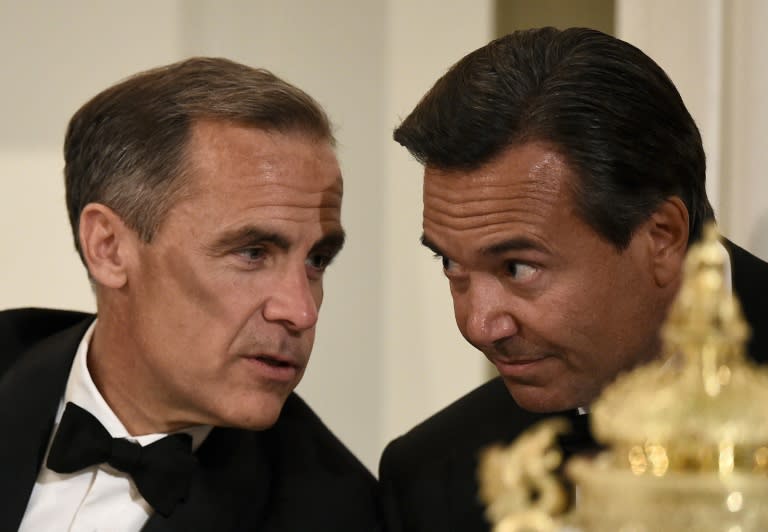Lloyds profits rise despite further mis-selling costs
Britain's state-rescued Lloyds Banking Group said Friday that net profits rose by 31 percent in the first half, despite setting aside further funds to compensate customers who were mis-sold insurance. Profit after tax rose to £874 million (1.245 billion euros, $1.364 billion) in the six months to June from the first half of 2014, LBG said in an earnings statement. Pre-tax profits grew 38 percent to £1.19 billion and the company announced a dividend of 0.75 percent per share, amounting to £535 million. This was despite LBG setting aside a further £1.4 billion to cover compensation to customers who were mis-sold payment protection insurance (PPI), taking the lender's total bill to £13.4 billion including administrative costs -- far higher than any other British bank caught up in the scandal. In early trading, shares in Lloyds fell 0.84 percent to 85.30 pence on London's benchmark FTSE 100 index, which was flat overall. "Shares in Lloyds Banking Group are failing to light up the FTSE... after interim results disappointed markets with lower than expected first-half profits and another frustrating provision for PPI," said Mike van Dulken, head of research at Accendo Markets. In 2011, British banks lost a high court appeal against tighter regulation of PPI, which provides insurance for consumers should they fail to meet repayments on a credit product such as consumer loans, mortgages or payment cards. PPI became controversial after it was revealed that many customers had been sold it without understanding that the cost was being added to their loan repayments. British authorities subsequently banned simultaneous sales of PPI and credit products. Last month meanwhile, British regulators fined LBG a total of £117 million for unfair treatment of customer complaints linked to PPI. Before the scandal came to light, the British government bailed out Lloyds during the financial crisis in 2008 at a cost of some £20 billion. It has been gradually reducing its stake in the bank over recent months and it now stands at less than 15 percent. LBG chief executive Antonio Horta-Osorio on Friday said the lender was focused on becoming "the best bank for customers and shareholders while at the same time supporting the UK economy". Lloyds paid out its first dividend since the financial crisis earlier this year, again of 0.75 percent.

 Yahoo Finance
Yahoo Finance 

